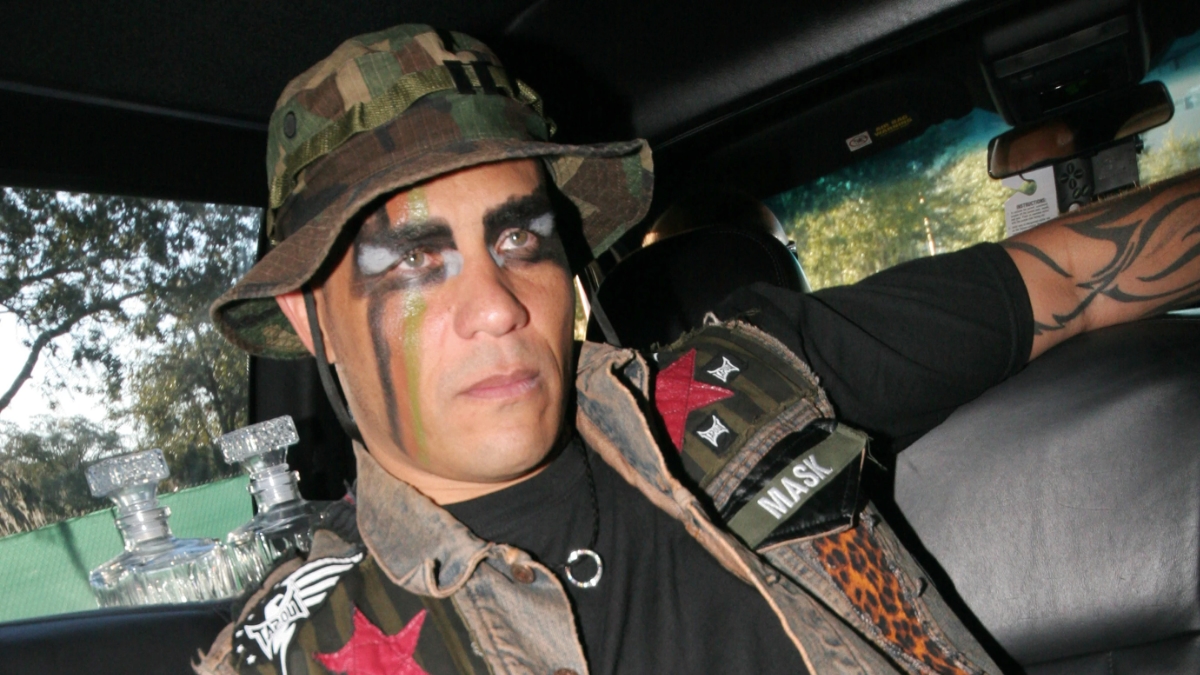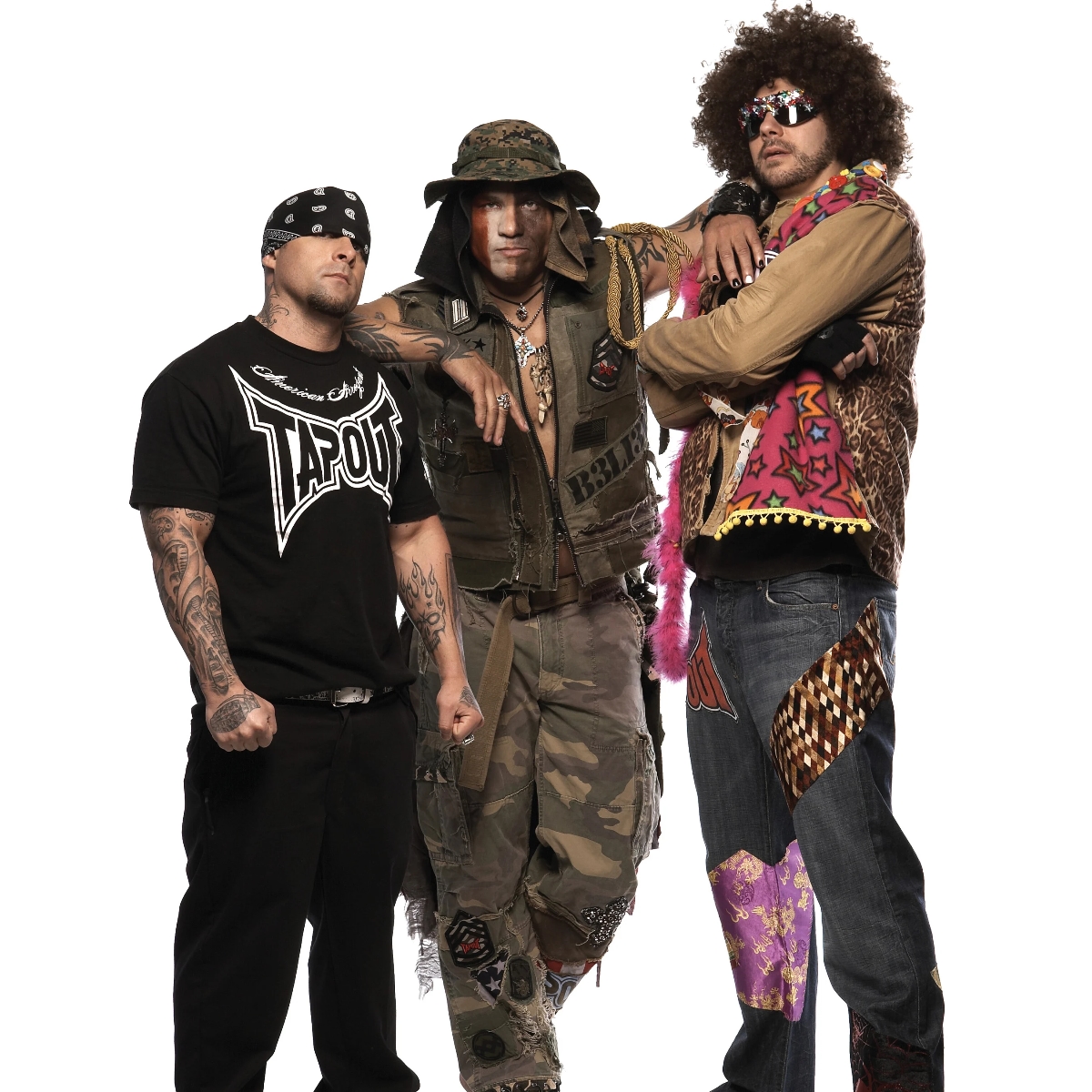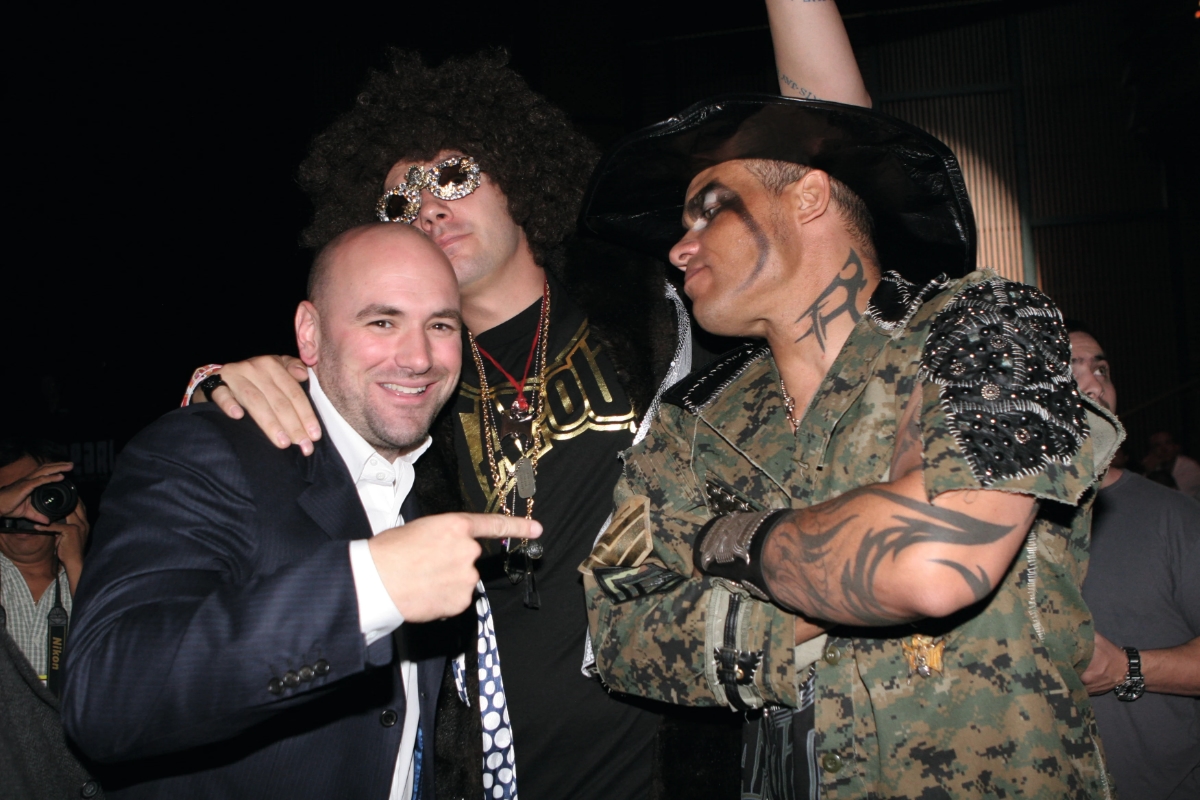
Charles ‘Mask’ Lewis
“It’s not just about putting on a T-shirt. It’s about the sport.” – Charles ‘Mask’ Lewis Jr (June 23, 1963 – March 11, 2009)
In 1997, MMA enthusiast and Tapout co-founder Charles ‘Mask’ Lewis began selling T-shirts from the back of his van. Ten years later, Tapout had grown to become a multi-million dollar company, the most recognizable brand of fight wear, and a driving force in the growth of mixed martial arts – all with Mask at its helm.
Though Mask came from humble beginnings, he reached for the stars. He helped create a brand that became synonymous with MMA, but, what’s more, he did it without a degree or a business plan, instead relying on contagious enthusiasm, a positive attitude and genuine love for the sport. He was one of the few who stood behind the UFC from its very inception, when it was ridiculed, unwelcome and largely unsanctioned.
Mask was a true pioneer of MMA, who believed in the sport before it could even be called that. Accompanied by Tapout co-founder Dan ‘Punkass’ Caldwell, Mask would spend his days traveling from show to show in his beat-up van to help promoters and encourage fighters in any way he could. Throughout his life, Mask befriended and assisted just about everyone, from Royce Gracie to Chuck Liddell.
“He did a tremendous amount for the sport,” says UFC commentator Joe Rogan. “He helped fighters pay their bills. He sponsored them, even back when there was no money in it. There was no money in MMA, and there was no money in MMA clothing. There was basically no money in the sport, but he still did it anyway. He always did what he thought was best for the sport.”
“When Chuck Liddell was unknown and fighting on smaller shows, he used to sleep on Mask’s couch,” says UFC president Dana White. “That’s the kind of guy Mask was. He really cared about the fighters.”
Mask was Tapout’s visionary. His belief in the eventual success of MMA led him to develop lifelong relationships with not only the stars of the sport, but also with those who came from obscurity. Without his support, many fighters would never have made it to where they are today.
“Charles always said it wasn’t just about shirts,” says Tapout co-founder, Punkass. “His vision was much deeper than that. He was shooting for the stars. He wanted the sport to blow up, he wanted the UFC to blow up, and we were somewhat riding their wave while also creating our own wave.”

In many ways, Tapout’s rise mirrored that of the UFC. Like the UFC, Tapout struggled for nearly a decade before it became truly successful. It was during this difficult time that Mask worked hardest, and became a regular at MMA events all over the country. Together with Punkass, he would do everything in his power for the sport, with nothing more than a dream and blind belief guiding him.
“He believed in MMA when no one gave a damn,” says legendary referee ‘Big’ John McCarthy. “It wasn’t just about promoting his brand, although he did that very well, it was about promoting the sport and the fighters. He wanted to see MMA take off.”
When MMA finally did take off, Tapout went with it. The company grew exponentially in 2005, following the success of the first The Ultimate Fighter finale, which it had sponsored. Following the broadcast, Tapout’s website was flooded with orders from all over the US. Overnight, the company went from being an obscure and barely profitable clothing company to a recognized brand and national phenomenon.
“We were getting 3,000 orders an hour,” says Punkass. “It was crazy. We were taking orders for clothes that we didn’t have and couldn’t make. We had to expand and get people who could help us process that kind of business. We were in a new place, somewhere we had never been before.”
Though Tapout became a multi-million dollar company with over 160 employees, material success was never Mask’s primary concern. In fact, the co-founder of Tapout used his newly available resources to further pursue his dream of seeing MMA take over the world.
In 2007, Mask’s efforts entered the public eye when the Versus Network launched the Tapout television series. In it, Mask, Punkass and Tim ‘Skyscrape’ Katz traveled around the USA in search of promising young fighters they could sponsor and help develop. Among their protégés were Donald ‘The Cowboy’ Cerrone and Dan Lauzon, who have both become successful athletes and well-known fighters.
Tragically, Mask’s work was cut short, just as he began to enjoy the fruits of his labors. On March 11, 2009, Mask was killed in a car accident in Newport Beach California, when his Ferrari 360 collided with a Porsche – he was declared dead at the scene. Following a police investigation, the driver of the Porsche was arrested for “alcohol-related gross vehicular manslaughter.”
Mask’s death sent a shockwave throughout the MMA community, as a who’s who list of promoters, fighters, trainers and organizers showed up at his memorial to mourn the loss of one of MMA’s most influential figures.
“I can still hear him today,” says Punkass. “Telling me to keep believing. He made everyone feel special. When Charles sat down with a fighter, or with anyone, he genuinely wanted to know about you as a person. He was genuinely interested in you. He treated the entire business from a relationship-focused level. Having said that, we have no fucking plans of slowing down. We know we have some big shoes to fill, but we’ve learned from the best. He would have been excited about all the projects we’ve got coming up, the last thing he would want is for us to slow down.”

In July 2009, Mask was posthumously inducted into the UFC Hall of Fame. He is the first and only non-fighter to have been given this honor, usually reserved for long-time champions and legends (other inductees are Royce Gracie, Ken Shamrock, Dan Severn, Randy Couture, Mark Coleman, and Chuck Liddell).
“Charles ‘Mask’ Lewis was a hard worker, one of the nicest guys you would ever meet. Loyal, honest – such a good person,” says Dana White. “This guy was such a huge part of the growth of mixed martial arts, of the grassroots movement, which kept the UFC alive. We loved him. The guy spent years struggling, he finally made it, and now he’s gone. It sucks.”
“Mask was as important as anybody,” agrees Zuffa CEO Lorenzo Fertitta. “He kept MMA together and he allowed it to prosper. He was right there with the fighters, finding ways to allow them to keep training when they couldn’t do it financially. He kept this whole thing together.”
Charles ‘Mask’ Lewis was a man who truly lived, breathed and, above all, believed in MMA. Through constant and consistent effort, he helped build MMA into what it is today. Mask founded his company with a simple mission statement: to help fighters. He did this through the good and, most importantly, through the bad, when no one else would.
Whether it was arranging sponsorships, lending an ear, or simply offering a place to crash, Mask did everything in his power to help the men and women who make their living inside the cage. Without his selfless contributions, MMA would not be where it is today. For this, Fighters Only is proud to give him the Special Achievement award.
Remembering ‘Mask’
“He was incredibly passionate. He was the first sponsor I ever had, but he was much more than that. We had a relationship that went all the way back to 2000. Back in the day, I used to crash in his room at events.” – Josh Barnett
“In the last decade, Charles had a very definite and positive impact on me, and on the sport. He will be missed.” – Forrest Griffin
“A lot of people saw him as an over-the-top, outgoing guy who was in your face. But under that was someone incredibly sincere and always true to his word.” – Keith Jardine
“He allowed these guys to fight. Back in the old days, the money wasn’t there. The only way these guys could train was due to his sponsorships and support.” – Reed Harris, WEC
“If he wasn’t there in those early days, a lot of fighters wouldn’t be in the positions they’re in today. Thank you Charles, you’ll always be a legend.” – Brian Warren
Originally published in Issue 60 of Fighters Only. Photos by Tracy Lee.
